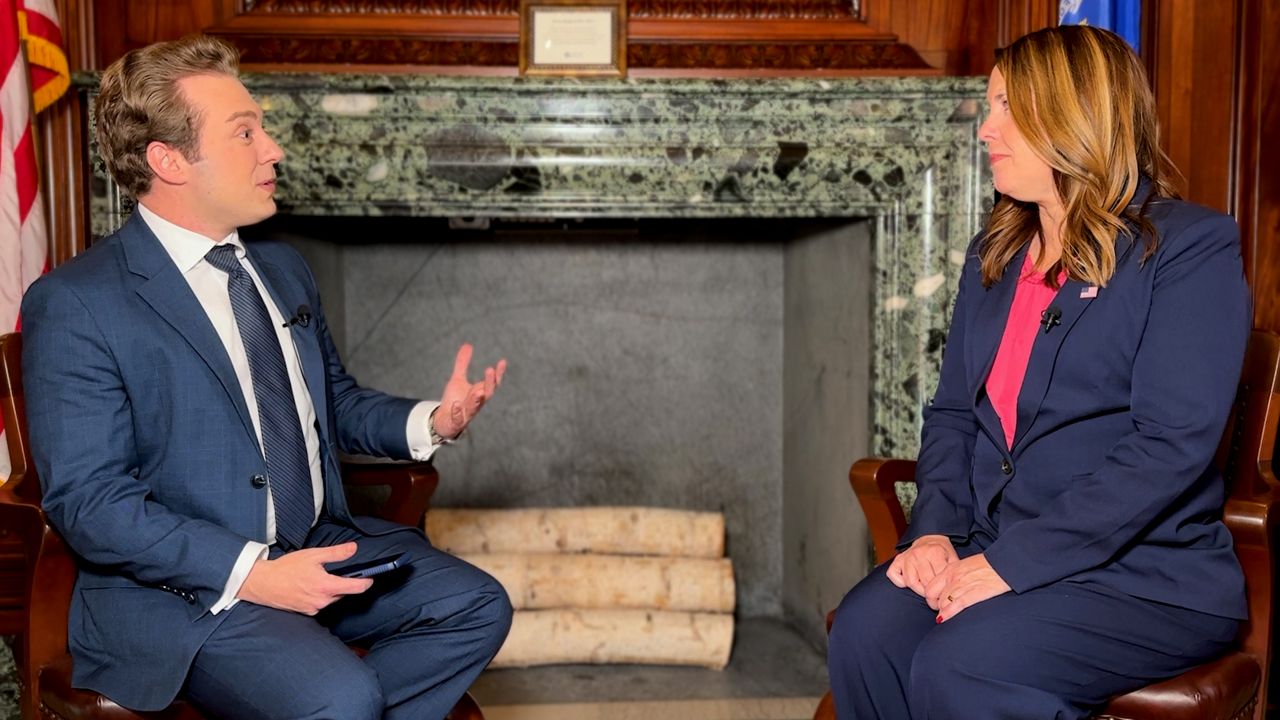MADISON, Wis. — When the Wisconsin Senate begins a new session in January, Democrats will have four more members on their side—something that gives Minority Leader Dianne Hesselbein “hope” for the next biennium.
She recently sat down with Spectrum News 1 Political Anchor Anthony DaBruzzi for a conversation about the party’s priorities in the new year and beyond, which you can watch above.
“Well, State Senate Democrats, we were out to win five seats. We won all five,” Hesselbein said. “We kept Brad Pfaff’s and we flipped four. We also kept, thank goodness, Sen. Tammy Baldwin in the U.S. Senate. So, I have hope, moving forward, that with these fair maps, we're going to be able to take more seats in two years, and then I'll be the Senate Majority Leader.”
In January, Senate Democrats will welcome Kris Alfheim, Jodi Habush Sinykin, Sarah Keyeski, and Jamie Wall to their caucus.
“It’s fantastic. So, I've met with Sen. LeMahieu and Sen. Felzkowski and saying, ‘I hope we can work together on some bipartisan issues,’” Hesselbein explained. “Looking at the members of their caucus and the Republicans, they have 18 members, and a lot of them haven't voted for a budget. I've never voted for a budget in the affirmative, so how do we get 17 votes in that chamber to ‘yes’? I think we're going to be working collaboratively moving forward, hoping we can get there.”
Though the state budget will likely provide the biggest opportunity for compromise between Democrats and Republicans, Hesselbein believes there are a couple of other policy areas too.
“We have a lot of things we didn't get done and signed into law last time. We were able to pass in the Senate, the postpartum bill for one year for people on Medicaid,” Hesselbein said. “And right now, it's 60 days, but it died in the Assembly. So, hopefully, the Senate can take that up again, send it to the Assembly, and hopefully they can pass it. The only state that hasn't done that is Arkansas. So that's a problem. We need to help people [who] are experiencing postpartum, and anybody who's had a child or knows anybody with a child knows that at day 60, everything doesn't magically disappear, and everything's fine. So, we need to give people the best health care possible. That's one bill. Another one is the right of first refusal for utilities. I'm hoping we can get that done. It's good for utility companies in the state of Wisconsin. It's also good for workers in the state of Wisconsin. So, that's something that might be out of the budget process, but maybe we can get behind quicker.”

Even though Democrats picked up more seats, they are still in the minority, so the policies they plan to keep pushing for probably won’t come as a surprise, according to Hesselbein.
“I think our priorities probably pretty much remain the same,” Hesselbein added. “Funding for K-12 education, we're sitting on billions of dollars in a surplus. I believe those dollars are theirs because we haven't been funding education like we should have been for years. So, people like me and others are saying 'yes' to referendum after referendum after referendum, because we want our schools to be able to supply the best education for our kids. But really, the state should be doing that. The state should be letting these school districts have the funds to see what they want to do and see how they want to provide the best education. So, definitely, investing into K-12 is extremely important to us.
With the latter half of the session being so short due to an election year, Hesselbein said there were missed opportunities. However, with a new biennium about to start, she’s still concerned about how the last one ended.
“This year, we had a disastrous last day, and with the Democrats, we had a lot of amendments we wanted to offer, and they really shut down debate, shut down the floor and just adjourned, and we should do better,” Hesselbein explained. “I mean, it used to be people that were retiring could kind of say their goodbyes and adjournment, and you'd clap for them, you know, things like that. We've lost a little bit of that in the State Senate, and I'm hoping that we can bring civility back because I really do believe that we can disagree without being disagreeable. Let's get back to that. And I think with what we're seeing that's happening on the federal level in Washington, D.C., let's be a beacon of light for people in the state of Wisconsin and show people what we can get done in a bipartisan manner. I think that's what people want. Whether they're a Democrat or Republican, they want to see something done, they want to see a budget pass, they want to see their lives get better. Let's have those conversations and let's get that done.”



